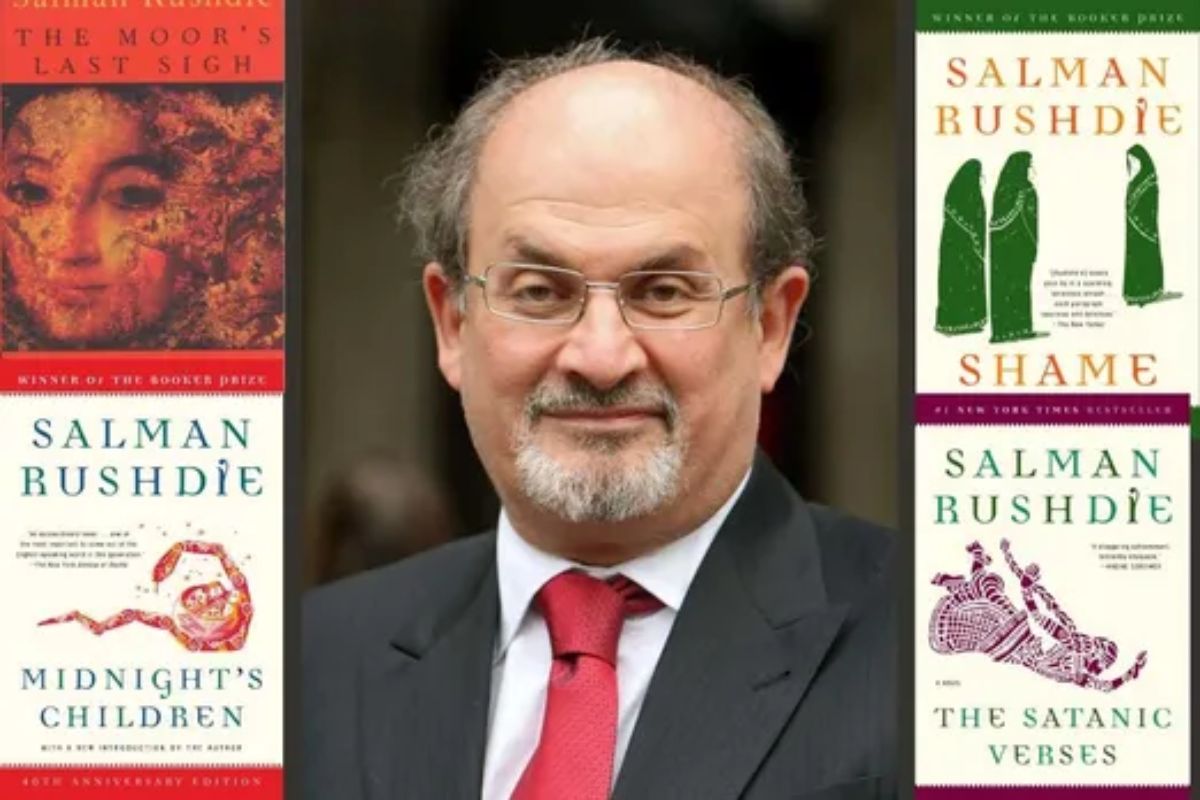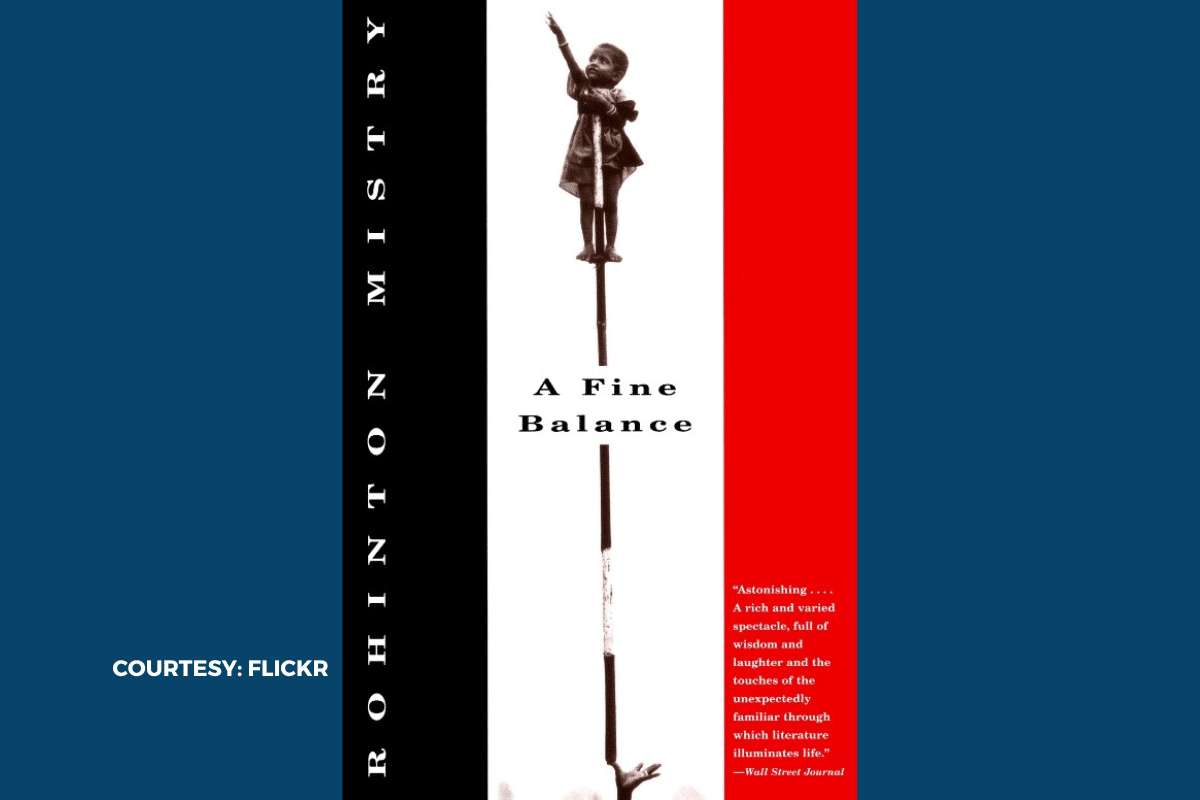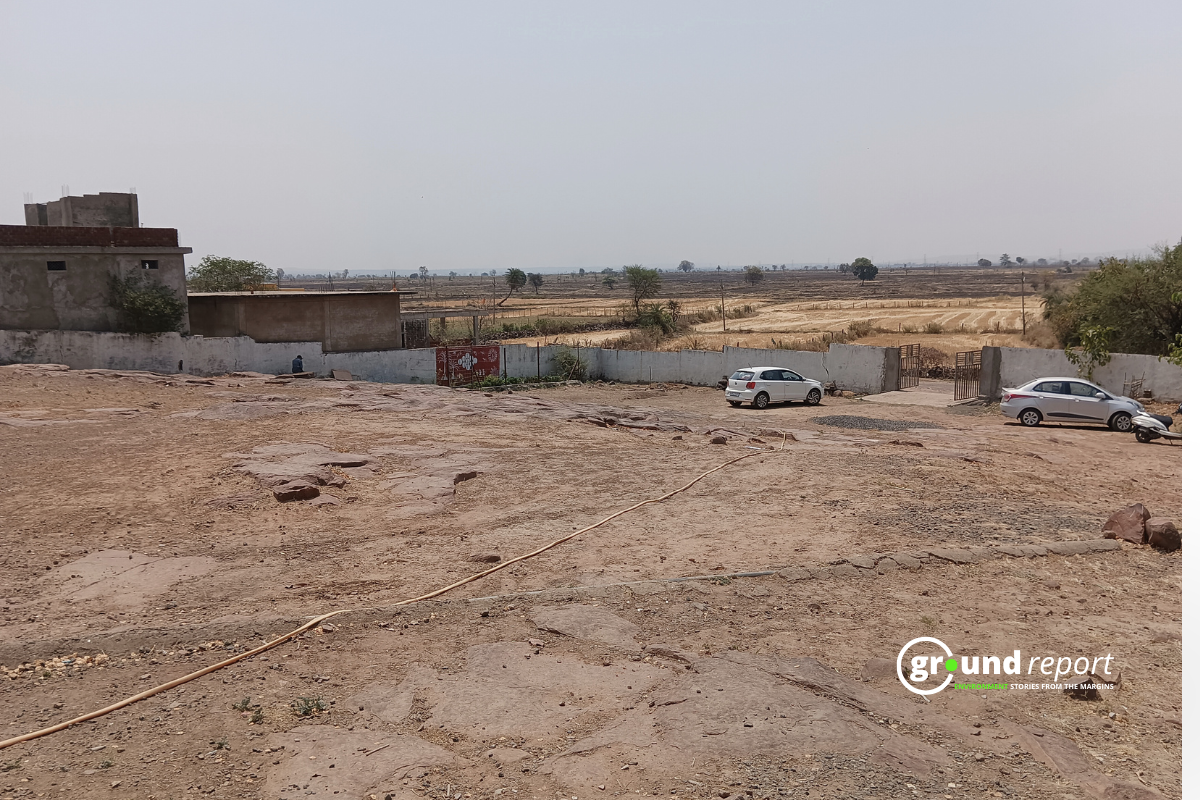Controversial author Salman Rushdie was attacked on Friday while he was on stage to give a lecture at Chautauqua, an institution in western New York.
New York State Police say they are investigating the attack on Salman Rushdie. According to New York police, Rushdie apparently had stab wounds to his neck and was airlifted to a nearby hospital.
The author, who sparked controversy with his novel The Satanic Verses, was onstage at the Chautauqua Institution in western New York when he was attacked.
Here is all you need to know
Salman Rushdie’s controversial book ‘The Satanic Verses’ has been banned in Iran since 1988 because many Muslims consider it blasphemous.
A year after the book’s publication, Iran’s former Supreme Leader Ayatollah Ruhollah Khomeini issued a fatwa calling for Salman Rushdie’s death.
A reward of more than 3 million dollars was also placed for Rushdie’s murder.
Iran’s government has long been silent on Khomeini’s edict, but anti-Rushdi sentiments still persist, and security is provided at all times.
In 2012, a semi-official Iranian religious foundation raised the reward for Rushdie’s murder to $3.3 million.
In the Muslim faith, the prophet Muhammad was visited by the angel Gibreel over a period of 22 years and recited the words of God to the prophet.
In The Satanic Verses, one character, Gibreel Farishta, is given his name by Gibreel in a series of dreams and “meets another central character in ways that echo the traditional Islam account of the angel’s encounters” with Prophet Muhammad.”
Another controversial part of the novel is the fact that Rushdie chooses to use a provocative name for Muhammed, using Mahound, which was “an alternative name for Muhammed that was sometimes used by Christians during the Middle Ages who regarded him as a demon”.
In the book, Mahound “puts his own words into the mouth of the angel Gibreel and delivers edicts to his followers that conveniently reinforce his selfish purposes,” which outraged Muslims because it implies that, instead of God, the Prophet Muhammad is himself. the source of revealed truths.
Controversial Books of Salman Rushdie
The Satanic Verses
Book Review By Rajeev Tyagi: “Fact is, religious faith, which encodes the highest aspirations of the human race, is now, in our country, the servant of lowest instincts, and god is the creature of evil”. The book is a journey of two characters, Gibreel Farishta and Saladin Chamcha after their miraculous survival from a hijacked jet blow up above the English Channel. While they are falling from the sky (that’s how the book starts), their bodies metamorphize into something else. Excelling in his own ‘magic realist’ world, Salman Rushdie takes us on an adventure full of metamorphism, revelations, and hallucinations. The book revolves around the question, ‘what would someone do when they are weak or all-powerful?’ The author equates this question with the emergence of Islam, through the character Mahound.
Written in 1988, this book stirred the famous debate on freedom of speech. A ban was imposed on his book, before publication, in India as well. A fatwa was issued to kill Salman Rushdie, but unlike Rushdie, the other translators didn’t survive the violent/undemocratic criticism of the book.
Midnights Children
Book Review By Rajeev Tyagi: This book was my first encounter with, much talk about, Salman Rushdie, and the book didn’t disappoint at all. Midnight Children is complex storytelling coupled with marvellous writing and intriguing subplots. The book follows a story of a boy, Saleem Sinai, born on 15th August 1947 at midnight. Yes, ‘handcuffed with history’. He and one thousand kids who are born between midnight and 1 AM are gifted with some special powers. Saleem Sinai believes everything which happened in India, post-independence, was because of him. This might sound similar to Forrest Gump, but it is not. Basically, he creates a parallel between his life and the country’s history.
The book takes you on a ride full of magic, realism, love, family drama, and revenge. The book is Salman Rushdie’s love story with India. Written in 1981, it won the prestigious Man Booker Prize. Later, in 1993 and 2008 won the Booker of Booker prize.
Shame
Book Review By Rajeev Tyagi: What and how I feel after reading this book is slightly difficult to put into words. Firstly, you might want to have some knowledge of the political history of Pakistan to enjoy the book in its entirety. And even if you wish to read it as a fictional story, it will still keep you hooked. It is a fairly short book, you can engage with it more than once.
Anyway; Shame captures the journey of Omar Khayyam—our hero— born to a trinity of women, and no one knows which of the three is his mother (and no one ever gets to know that). Our hero during his life meets two specific individuals, Iskander Harappa and Raza Hyder and the relationship between the three is explored in the novel. But, that is not it. The book also explores the history of the country which is ‘not quite Pakistan’. The central theme of the book is that shame leads to violence. Through each character, and there are a lot of them, the author explores the theme of shame, shamelessness and violence.
This is the exact book you expect when you think of Salman Rushdie literature. But, unlike his other books, I have read, this one never gets overwhelming, so you might finish it fairly quickly. This is a good dive into the history of Pakistan which you can engage with later. In the bulk of work the author has done, this probably is his most underrated writing.
Moor’s Last Sigh
/ground-report/media/post_attachments/wp-content/uploads/2022/08/5-2-1024x683.jpg)
The Moor’s Last Sigh is a novel in which ancient history, modern life, fantasy, tragedy, and satire form overlapping layers of multiple meanings. Rushdie is purposefully imitating an artistic technique known as a palimpsest, in which a piece of art or writing is partially scraped off to place another work on top of it. One way to get an idea of how the novel creates these layers of meaning is to look at the title.
The “Last Sigh of the Moor” refers to a variety of Moors and sighs. It is the sound of defeat made by the royal historical figure Muhammad XI (or Boabdil to the Spanish), the last Moorish sultan on the Iberian Peninsula, when the powerful new Catholic kings of Counter-Reformation Spain betrayed and defeated him in 1492.
It is also the gasp of Othello, Shakespeare’s Moor of Venice, before taking his own life. It is at the same time the title of two works of art in the novel that represent Boabdil’s departure. And finally, of course, is the novel itself, the last breaths of our narrator, Moraes Zogoiby, nicknamed “the Moor”, as he tells the story of himself and dies.
The Golden House
/ground-report/media/post_attachments/wp-content/uploads/2022/08/4-1-1024x683.jpg)
The Golden House tells the story of Nero Golden and his three sons, Petya, Apu, and D, and their time in America. In addition, the novel tells the story of René’s life and his creation of a film about the Golden family. The novel begins by introducing Nero Golden and his three children. Petya, the eldest, is extremely intelligent, alcoholic, and agoraphobic. Apu, the second eldest, is a bohemian who loves American life.
D, the youngest, has a different mother than his brothers and struggles with his gender identity. Then René introduces himself and says that he wants to make a movie about the Golden brothers. The novel then relates how Apu and Petya fight over a woman named Ubah, and how D falls in love with a woman named Riya.
Nero Golden and his three children flee to the United States after losing Nero’s wife in the November 2008 terrorist attacks in Bombay (or Mumbai) by the Pakistan-based Lashkar-e-Tayyaba, which it claimed hundreds of lives.
They arrive in Manhattan on the day of Barack Obama’s inauguration. We learn early on that Nero had more dubious reasons for leaving India, where he clearly kept shady companies. Classic noir, where the forces that threaten the protagonist’s existence at home finally reappear and continue to do so in his new life. In this case, the protagonist is not hiding in a dark town but in the capital of the world. Where better to dissolve and reinvent yourself than in this melting pot (a theme Rushdie also visited in 2001’s Fury)? “They”, says the narrator René, would escape from the historical to the personal, and in the New World the personal would be all they sought and all they hoped for, to be detached, individual and alone, each to do his own thing. according to everyday life, outside of history, outside of time, in privacy.
Support us to keep independent environmental journalism alive in India.
Keep Reading
Indore Startup Swaaha takes the lead in making Amarnath Yatra eco-friendly
Amarnath Yatra: Tackling rising death toll from extreme weather events
Amarnath yatra pilgrims urinating in Sindh river: A threat to environment
IMD operationalizes Banihal Doppler weather radar to detect high-impact weather events
Stay connected with Ground Report for underreported environmental stories.
Follow us on X, Instagram, and Facebook; share your thoughts at greport2018@gmail.com; subscribe to our weekly newsletter for deep dives from the margins; join our WhatsApp community for real-time updates; and catch our video reports on YouTube.
Your support amplifies voices too often overlooked—thank you for being part of the movement.









